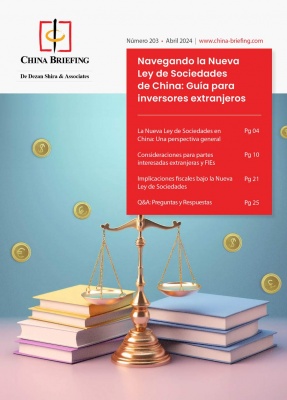NDRC Punishes Milk Powder Manufacturers for Price Monopoly Violations
Aug. 14 – China’s National Development and Reform Commission (NDRC) announced the punishments for six milk powder manufacturing companies that were charged with price monopoly practices last week. The six manufacturers are expected to forfeit a total of roughly RMB670 million (US$110 million) in fines as part of their punishment. The six companies are:
- BIOSTIME;
- Mead Johnson;
- Dumex;
- Abbott;
- FrieslandCampina; and
- Fonterra (which is also the lead company involved in the recent milk product recall case)
This past March, the Price Supervision and Anti-Trust Bureau under the NDRC began a price monopoly investigation on these six companies in addition to Wyeth, BEINGMATE and Meiji after being tipped off to their illegal activities. Through the investigation, these companies were proven to have conducted resale price maintenance actions against retailers in various forms, including fixing resale prices and prescribing minimum product resale prices. If the retailers did not resell these companies’ products in accordance with the prices they listed, then the companies would punish them through methods such as levying fines, decreasing profit allocation, or limiting the supply of milk powder products.
The NDRC has further confirmed that these companies were found guilty of creating a price monopoly on milk powder products throughout China, which is a breach of Article 14 of China’s Anti-Trust Law (ATL) and also unfairly maintains high milk powder prices throughout the country. Each one of the accused companies has admitted that their conduct did violate Chinese law and that they do not qualify for the exemption conditions as prescribed in Article 15 of the ATL.
The NDRC’s punishments came in the form of fines, with BIOSTIME being fined RMB163 million (good for 6 percent of its 2012 sales), Mead Johnson being fined RMB204 million (good for 4 percent of its 2012 sales) and Dumex, Abbott, FrieslandCampina and Fonterra each being fined RMB172 million, RMB77 million, RMB48 million and RMB4.5 million, respectively.
Wyeth, BEINGMATE, and Meiji were exempted from punishment because they cooperated with the investigation authorities and actively rectified the issues once they came to light.
“The reason why three of the companies were not fined is because, according to China’s anti-trust law, if you voluntarily provide important evidence, cooperate with the investigation, and take steps to reverse any negative impact and stop all illegal activities, then fines can be waived,” according to Xu Kunlin, director of the NDRC’s anti-trust division.
All the involved companies were also required to modify their sales agreements and relevant policies, and also take active measures to fix whatever damages their actions have created. For example, Meiji has pledged to supply the Chinese market with milk powder products at a preferential price over the next two years, while Wyeth has marked down the prices of its major products by an average of 11 percent starting last month.
Dezan Shira & Associates is a specialist foreign direct investment practice, providing corporate establishment, business advisory, tax advisory and compliance, accounting, payroll, due diligence and financial review services to multinationals investing in emerging Asia.
For further details or to contact the firm, please email china@dezshira.com, visit www.dezshira.com, or download the company brochure.
You can stay up to date with the latest business and investment trends across China by subscribing to Asia Briefing’s complimentary update service featuring news, commentary, guides, and multimedia resources.
Related Reading
 Internal Control and Audit
Internal Control and Audit
This issue of China Briefing Magazine is devoted to understanding effective internal control systems in the Chinese context and the role of audits in detecting and preventing fraud.
 Trading With China
Trading With China
This issue of China Briefing Magazine focuses on the minutiae of trading with China – regardless of whether your business has a presence in the country or not. Of special interest to the global small and medium-sized enterprises, this issue explains in detail the myriad regulations concerning trading with the most populous nation on Earth – plus the inevitable tax, customs and administrative matters that go with this.
 E-Commerce in China
E-Commerce in China
In this issue of China Briefing Magazine, we cover the current laws pertinent to the e-commerce industry in China, as well as introduce the steps involved in setting up an online shop in the country in order to help provide foreign investors with an overview of the e-commerce landscape in China.
Internal Control and Fraud Prevention in China
Internal Control and Anti-Corruption Regulations in China
- Previous Article China Clarifies Preferential Tax Policies for Software Enterprises
- Next Article China Allows Foreign-Invested Insurance Companies to Make Capital Contributions in RMB



























